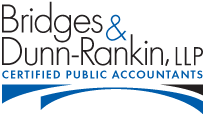ESOP as Exit Strategy
By Kenneth H. Bridges, CPA, PFS June 2012
For entrepreneurs looking to sell their business, a “strategic buyer” (e.g. larger company in the same industry) is usually the best buyer. However, for companies for which there is not a strategic buyer or institutional financial buyer (e.g. private equity group), an employee stock ownership plan (ESOP) may represent a tax-advantaged way in which to sell the company (or some portion thereof) to the employees of the company.
An ESOP is a qualified plan designed to invest primarily in the employer’s stock, and thus provide the participants with an ownership stake in their employer. An ESOP may borrow money and enter into transactions with related parties to acquire the employer’s stock. With respect to a C-corp, the company gets an income tax deduction not only for contributions made to the ESOP, but also for any dividends paid to the ESOP. Thus, debt incurred to finance the ESOP’s purchase of the employer stock can effectively be repaid with pre-tax dollars.
A C-corp shareholder selling his or her stock to an ESOP is permitted to roll the otherwise taxable gain over into other publicly-traded stocks and securities, thus enjoying what may be a very long-term (possibly permanent) deferral of the tax that would have otherwise been incurred on the sale of the shares.
From the employees’ perspective, an ESOP provides the employees with an ownership stake in their employer company while enjoying the tax benefits associated with other types of qualified retirement plans (e.g. not taxed until they receive distributions, which is typically during retirement or following separation from service).
Historically, ESOPs were used only for the purchase of C-corp stock. However, legislation enacted in 1996 permits S-corps to have an ESOP owner. The seller of S-corp stock to an ESOP does not enjoy the tax-free rollover treatment that the seller of C-corp stock is permitted, and the S-corp cannot take a deduction for dividends paid to an ESOP. However, any S-corp earnings allocated to an ESOP are not subject to income tax.
Kenneth H. Bridges, CPA, PFS is a partner with Bridges & Dunn-Rankin, LLP an Atlanta-based CPA firm.
This article is presented for educational and informational purposes only, and is not intended to constitute legal, tax or accounting advice. The article provides only a very general summary of complex rules. For advice on how these rules may apply to your specific situation, contact a professional tax advisor.
